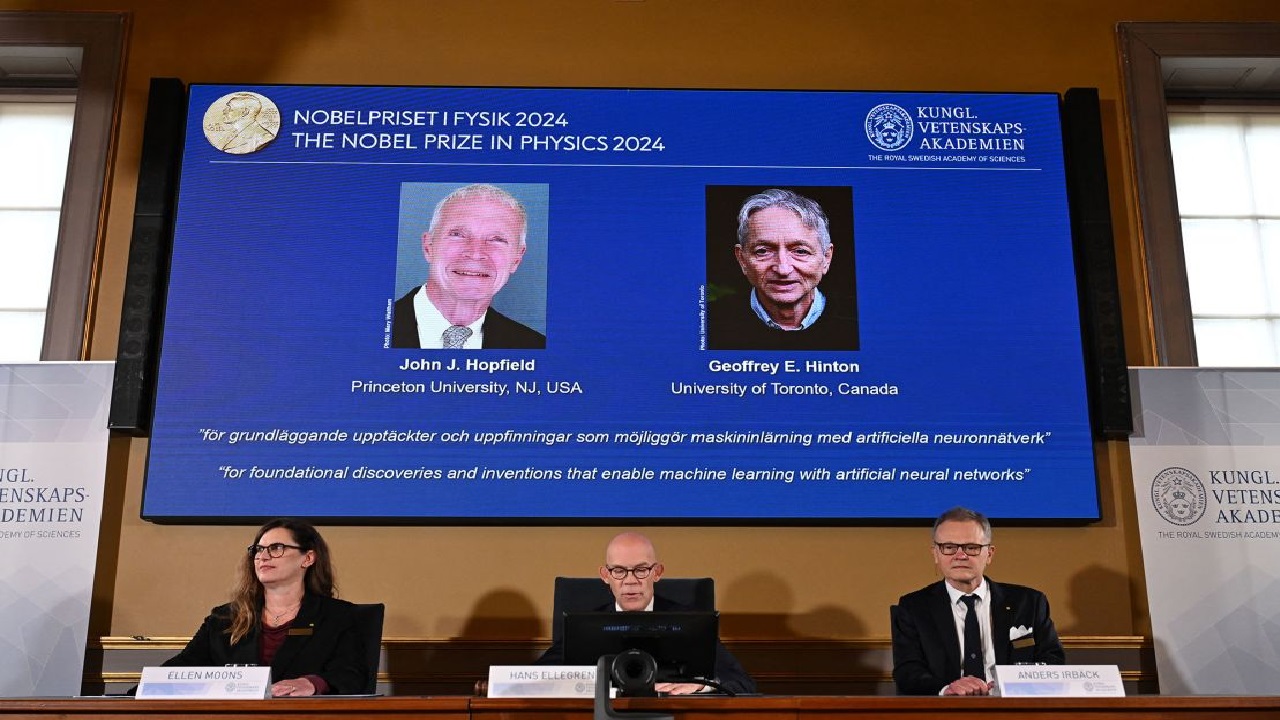
Groundbreaking Contributions to Artificial Neural Networks Honored
John J. Hopfield and Geoffrey E. Hinton have been jointly awarded the 2024 Nobel Prize in Physics for their pioneering work in the development of artificial neural networks, a critical foundation for modern machine learning. The Royal Swedish Academy of Sciences, Stockholm, made the announcement on October 8, recognizing their profound influence on both physics and artificial intelligence (AI).
“The laureates’ work has already been of the greatest benefit,” stated Ellen Moons, chair of the Nobel Committee for Physics. “In physics, we use artificial neural networks in a vast range of areas, such as developing new materials with specific properties.”
Who Are John Hopfield and Geoffrey Hinton?
John J. Hopfield, born in Chicago in 1933, is a professor at Princeton University, New Jersey. With a PhD from Cornell University, Hopfield is renowned for inventing the Hopfield network—a type of artificial neural network that stores and recreates patterns. His invention was inspired by principles from physics, particularly the concept of atomic spin, where each atom behaves like a tiny magnet. This method laid the groundwork for understanding how neural networks can process information by mimicking certain physical properties.
Geoffrey E. Hinton, born in London in 1947, is a professor at the University of Toronto, Canada. A key figure in the field of deep learning, Hinton earned his PhD from the University of Edinburgh in 1978. His most notable contribution to AI is the Boltzmann machine, which builds on Hopfield’s network. The Boltzmann machine utilizes statistical physics to train systems using examples that simulate real-world conditions. This network represents a critical step toward the development of more advanced machine learning algorithms and deep learning architectures, which have transformed fields ranging from image recognition to natural language processing.
Revolutionary Impact of Their Work
Hopfield’s and Hinton’s contributions have not only revolutionized machine learning but have also found applications across a wide range of disciplines. From optimizing materials with specific physical properties to enhancing computational models that drive advancements in AI, their work bridges physics and computer science, demonstrating the deep interdisciplinary impact of neural networks.
The Legacy of the Nobel Prize
The Nobel Prize, established by Alfred Nobel in 1895, remains one of the most prestigious honors in the world. The prizes, first awarded in 1901, recognize individuals whose achievements provide the “greatest benefit to humankind.” The Royal Swedish Academy of Sciences is responsible for awarding the Nobel Prizes in Physics and Chemistry, while other institutions select laureates in medicine, literature, and peace.
The 2024 Nobel Prize in Physics marks another milestone in recognizing the role of AI and machine learning in shaping the future of science and technology. The groundbreaking work of John Hopfield and Geoffrey Hinton continues to influence researchers and innovators across the globe.
(With inputs from agencies)







